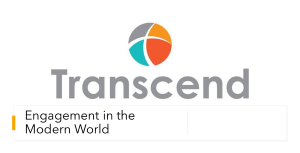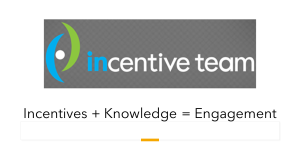Stakeholder Capitalism Crosses Red-Blue Divide: 19 Rep., 16 Dem. Govs. Ink Public Benefits Corp. Statutes
Note: The Enterprise Engagement Alliance, which other than being based on capitalist principles is strictly non-partisan, has initiated a Change.org petition encouraging politicans to unite around leaving alone a bi-partison reform concept most people can agree upon except those who favor state over private, public, or employee ownership.
By Bruce Bolger
19 Republicans, 1 Libertarian, 17 Democrats Sign Public Benefits Corp. Statutes
States With Public Benefits Corp. Statutes By Democratic or Republican Governor
What do such prominent conservatives as Rick Scott of Florida, Nikki Haley of South Carolina, Sam Brownback of Kansas, Mike Pence of Indiana, and Greg Abbott of Texas have in common? They like liberals Andrew Cuomo from New York, Deval Patrick of Massachusetts, John Hickenlooper of Colorado and many others all signed into law public benefits corporation statutes that enshrine into corporate law the principles of Stakeholder Capitalism for any company which elects to balance purpose and profit in their states.
These statutes allow publicly or privately held companies to run their organizations based on a clearly articulated purpose of their choice and to consider the interests of all stakeholders in fulfilling that purpose, while raising capital and distributing profits in conventional means privately or publicly. To comply, organizations must clearly state their purpose, report on how they engage with their stakeholders, and have their practices audited by a third party. Of course, consistent with Stakeholder Capitalism principles, companies have the right to conduct business any which way they legally choose to do so; let the free market to decide with whom investors and other stakeholders wish to engage.
19 Republicans, 1 Libertarian, 17 Democrats Sign Public Benefits Corp. Statutes
If anything, as the chart below shows, the statutes have received more support in conservative and libertarian states than in liberal states. Out of the 37 states and territories tracked based on the latest Wikipedia list of states with such 36 such statutes in 2018, 19 were in states with a Republican governor; 17 in states or a territory with a Democratic governor, and 1 in a state with a Libertarian governor. Puerto Rico enacted public benefits corporations in its territory after the Wikipedia chart was created; it has a Democratic governor.
Stakeholder Capitalism principles almost precisely align with those of public benefits corporation statues. According to Upcounsel.com, “A public benefit corporation is a corporation created specifically to benefit the public in some way. The focus is on both profit and mission alignment...Benefit corporations not only have the goal of profit maximization, but they also work to benefit the public in both general and specific ways. Benefit corporations must consider how their selections affect both shareholders and stakeholders.” Because customers, employees, supply chain and distribution partners, and communities in fact are critical to wealth creation, it's common sense to address their needs.
There are over 3,000 public benefits corporations in the US alone, including nearly two-dozen publicly held companies, notable brand names including Danone North America, Chobani, and Warby Parker. Click here for an EEA YouTube interview with Bart Houlahan, Co-Founder of not-for-profit B Lab, which helped pioneer public benefits corporation statutes and which helps promote and audit corporations seeking public benefits corporation status. He notes that a company does not have to have a statutory public benefits corporation status to benefit from having B corp certification by B Lab. Nearly 6,400 companies in 89 countries have received a B corp certification.
States With Public Benefits Corp. Statutes By Democratic or Republican Governor
Below is a 2018 Wikipedia chart outlining the status of public benefits corporation statutes in the US and the party of the governor in power at the time of approval added by ESM. Note that Puerto Rico enacted the laws under a Democratic governor following creation of the Wikipedia chart and that some of the states considered most "red" have public benefits corporation statutes signed by well-known conservatives, some of whom have already declared or let known their intentions to run for US president on an anti-ESG slate.
State Date Passed Date Enacted Party of
Governor
| Arkansas | April 19, 2013 | July 18, 2013 | Republican |
| California | Oct. 9, 2011 | Jan. 1, 2012 | Democrat |
| Colorado | May 15, 2013 | April 1, 2014 | Democrat |
| Connecticut | April 24, 2014 | Oct. 1, 2014 | Democrat |
| Delaware | July 17, 2013 | Aug. 1, 2013 | Democrat |
| Florida | June 20, 2014 | July 1, 2014 | Republican |
| Hawaii | July 8, 2011 | July 8, 2011 | Democrat |
| Idaho | April 2, 2015 | July 1, 2015 | Republican |
| Illinois | Aug. 2, 2012 | Jan. 1, 2013 | Democrat |
| Indiana | April 30, 2015 | July 1, 2015 | Republican |
| Kansas | March 30, 2017 | July 1, 2017 | Republican |
| Kentucky | March 7, 2017 | July 1, 2017 | Republican |
| Louisiana | May 31, 2012 | Aug. 1, 2012 | Republican |
| Maryland | April 13, 2010 | Oct. 1, 2010 | Democrat |
| Massachusetts | Aug. 7, 2012 | Dec. 1, 2012 | Democrat |
| Minnesota | April 29, 2014 | Jan. 1, 2015 | Democrat |
| Montana | April 27, 2015 | Oct. 1, 2015 | Democrat |
| Nebraska | April 2, 2014 | July 18, 2014 | Republican |
| Nevada | May 24, 2013 | Jan. 1, 2014 | Republican |
| New Hampshire | July 11, 2014 | Jan. 1, 2015 | Democrat |
| New Jersey | Jan. 10, 2011 | March 1, 2011 | Republican |
| New Mexico | Feb. 18, 2020 | Feb. 18, 2020 | Democrat |
| New York | Dec. 12, 2011 | Feb. 10, 2012 | Democrat |
| Oregon | June 18, 2013 | Jan. 1, 2014 | Democrat |
| Pennsylvania | Oct. 12, 2012 | Jan. 1, 2013 | Republican |
| Rhode Island | July 17, 2013 | Jan. 1, 2014 | Libertarian |
| South Carolina | June 6, 2012 | June 14, 2012 | Republican |
| Tennessee | May 20, 2015 | Jan. 1, 2016 | Republican |
| Texas | June 14, 2017 | Sept. 1, 2017 | Republican |
| Utah | April 1, 2014 | May 13, 2014 | Republican |
| Vermont | May 19, 2010 | July 1, 2011 | Republican |
| Virginia | March 26, 2011 | July 1, 2011 | Republican |
| Washington, D.C. | Feb. 8, 2013 | May 1, 2013 | Democrat |
| West Virginia | March 31, 2014 | July 1, 2014 | Democrat |
| Wisconsin | Nov. 27, 2017 | Feb. 26, 2018 | Republican |
Subscribe to ESM's weekly newsletter.
Click here to learn about the EEA’s bi-partisan Change.org petition to keep politicians out of business management.
 Profit From the “S” of Environmental, Social, Governance (ESG)
Profit From the “S” of Environmental, Social, Governance (ESG)Through education, media, business development, advisory services, and outreach, the Enterprise Engagement Alliance supports boards, business analysts, the C-suite, management in finance, marketing, sales, human resources and operations, etc., educators, students and engagement solution providers seeking a competitive advantage by implementing a strategic and systematic approach to stakeholder engagement across the enterprise. Click here for details on all EEA and RRN media services.
1. Professional Education on Stakeholder Management and Total Rewards
-
 Become part of the EEA as an individual, corporation, or solution provider to gain access to valuable learning, thought leadership, and marketing resources.
Become part of the EEA as an individual, corporation, or solution provider to gain access to valuable learning, thought leadership, and marketing resources. - The only education and certification program focusing on Stakeholder Engagement and Human Capital metrics and reporting, featuring seven members-only training videos that provide preparation for certification in Enterprise Engagement.
- EEA books: Paid EEA participants receive Enterprise Engagement for CEOs: The Little Blue Book for People-Centric Capitalists, a quick implementation guide for CEOs; Enterprise Engagement: The Roadmap 5th Edition implementation guide; a comprehensive textbook for practitioners, academics, and students, plus four books on theory and implementation from leaders in Stakeholder Management, Finance, Human Capital Management, and Culture.
- ESM at EnterpriseEngagement.org, EEXAdvisors.com marketplace, ESM e–newsletters, and library.
- RRN at RewardsRecognitionNetwork.com; BrandMediaCoalition.com marketplace, RRN e-newsletters, and library.
- EEA YouTube Channel with over three dozen how-to and insight videos and growing with nearly 100 expert guests.
Strategic Business Development for Stakeholder Management and Total Rewards solution providers, including Integrated blog, social media, and e-newsletter campaigns managed by content marketing experts.
4. Advisory Services for Organizations
Stakeholder Management Business Plans; Human Capital Management, Metrics, and Reporting for organizations, including ISO human capital certifications, and services for solution providers.
5. Outreach in the US and Around the World on Stakeholder Management and Total Rewards
The EEA promotes a strategic approach to people management and total rewards through its e-newsletters, web sites, and social media reaching 20,000 professionals a month and through other activities, such as:
- Association of National Advertisers Brand Engagement 360 Knowledge Center to educate brands and agencies.
- The EEA Engagement widget to promote, track, and measure customers/employee referrals and suggestions that can be connected to any rewards or front-end program management technology.
- The Stakeholder Capitalism free insignia to promote a commitment to better business.
- The BMC Brand Club and transactional storefronts to educate corporate and agency buyers on the IRR market.
- The EME Gold program to educate the top 3% of promotional consultants on selling engagement and rewards services.

















